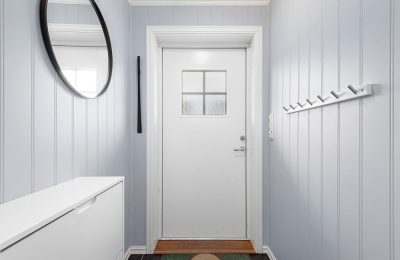Managing common repairs, either as a landlord or a letting agent on behalf of your clients, can be a complicated process. In our work, supporting homeowners, letting agents and other housing professionals with information and advice on tenement management, repair and retrofit, we come across many common misconceptions. These can impact the repair process, and make it more complicated than it has to be. In this article, we will debunk some of these common misconceptions, to help letting agents and landlords understand their responsibilities when looking after Scotland’s tenement buildings.
As a letting agent, I can charge a fee for managing common repairs in my clients’ buildings.
If a letting agent charges a fee in exchange for organising repairs on behalf of their client, in common areas of the building such as the close, stairs or roof, then they should be registered accordingly, under the Property Factors (Scotland) Act 2011. This legislation helps to set standards for how factors deal with owners and repairs, and it puts responsibilities on factors to be registered, abide by a Code of Conduct, and fulfil the duties outlined in their Written Statement of Service. If, as a letting agent, you do not wish to register as a factor, you must ensure that you do not charge fees for organising common repairs for your clients.
I can leave it to my clients to communicate with their factor.
While it is crucial that letting agents do not act as factors without being registered as such, it is important to build relationships with your clients’ factors. This will be very helpful when keeping track of works being done in your clients’ buildings, and will make the process of managing their property much easier. You will likely have to interact with your client’s factor to get updates on property maintenance, and to report any maintenance issues affecting the common areas of your client’s building. Make sure that you ask clients about their factoring arrangements, and keep up-to-date contact information for factors on hand.
I do not need to speak to my clients about their buildings insurance.
If you are legally authorised to offer insurance products to your clients, you must clearly tell your clients about any related costs, and itemise these on all relevant documents. If you have any financial or personal interest in the insurance provider you are using, such as receiving a commission, you have to disclose this to landlords and tenants on request. If it is your responsibility to handle insurance claims on your clients’ behalf, you should have a procedure for this in place, and should update your clients on the progress of their insurance claim, liaising with the insurance provider as needed to ensure the claim is processed correctly and promptly.
Roof repairs are the sole responsibility of the owners on the top floor of my building.
At Under One Roof, we often come across this common misconception about roofs, and which owners have responsibility for paying for roof repairs. Unless your titles say otherwise, the roof is a part of a tenement building which provides support and shelter, and so under the Duty to Maintain and the Tenements (Scotland) Act 2004, all the owners in the building have a responsibility to maintain it. Damage to the roof can impact the whole building and make it unsafe, so it is important that everyone pays their share of the cost of repairing it. Similarly, top floor flat owners are equally responsible for repairs to the foundations of their building. Always check your titles for details of what your responsibilities are, and what your share of repair costs should be.
I do not live on the ground floor, so I am not responsible for the back court or garden in my building.
Your titles should confirm who owns the garden or back court of your building, and who is responsible for its maintenance, so do not make any assumptions without checking your titles first. Titles differ considerably from building to building; in some buildings, everyone shares responsibility for the back court, which is held in common. In others, particularly four-in-a-blocks or cottage flats, the garden is divided and each owner is responsible for a patch of it. If your titles do not mention the garden or back court, refer to the Tenements (Scotland) Act 2004, which states that the owner of the bottom flat nearest the garden owns it. Always check your titles.
These are a few common misconceptions we encounter in our work, whether we are training letting agents or presenting at local authority landlords’ forums across Scotland. Many of them appear in the enquiries we receive through our ‘Ask an Expert’ service, where you can ask any question about tenement repair, maintenance or retrofit and receive a prompt, bespoke response from one of our Education and Training Officers. Find out more, and submit your own enquiry, on our website: https://underoneroof.scot/ask-an-expert/











